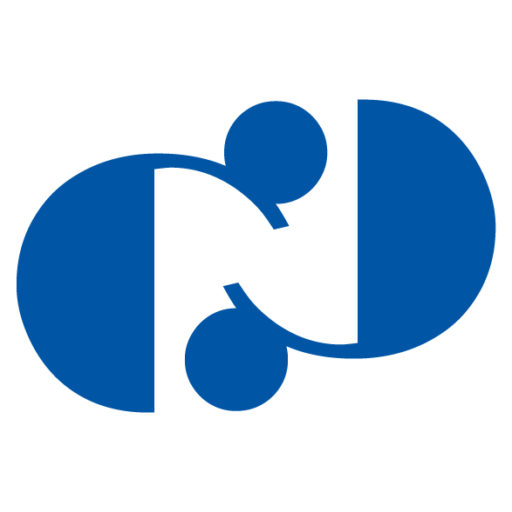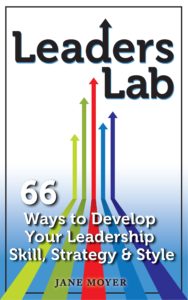There are many good ways to learn. I can show you how to practice effectively to develop skills. I can share techniques to assimilate and remember information efficiently. I can point you to recommended resources and good books to help you learn principles and see examples. You can go to a class, get a coach, or join a discussion group.
These tactics won’t take you all the way, though. You must activate your learning by putting it into practice.
It’s said that “experience is the best teacher.” To become a good speaker, you must get out and speak. To get good at writing, you have to write. You won’t become a good salesperson without facing prospects. To become a great manager, you must manage. Learning occurs as we face real situations, take action, evaluate results, and adjust.
Jump Right In?
Ultimately, to learn something you must DO IT. Sometimes, the best and fastest way to learn is to jump right in!
But I’m Not Quite Ready!!!
You might be saying, “OK, then. Great. I’ll try it.” We often don’t know what we’re capable of until we’re faced with real-life situations.
But you might also be saying, “Oh, NO. I’d make a fool of myself.” Of course, I don’t want that for you.
There is always risk in doing anything new. Depending on what you’re taking on and your current level of experience and skill, you might not be ready yet. It might be wise to prepare more before you step out into the fire. Explore what’s holding you back by asking yourself:
- What is the real risk? How big is the risk? How likely is it?
Try to specifically identify the potential risk. Losing money? Looking foolish? Annoying others? Wasting time? Damaging your reputation? Damaging a relationship? Poor results? Having to fix something later? Generating more problems or work? Total failure? Something else? (Being successful?) Is your fear legitimate—or is it just fear?
- What would you really need to do to BE ready? What would you need to do to FEEL ready?
Being ready, or ready enough for now, and feeling ready are two different things. Identify and address meaningful deficits, but watch out for more minor issues you are using as an excuse to procrastinate. Will more time or a little more information really help? Confidence actually comes from experience; you know you can handle what comes along because you’ve done it or something similar before.
Do This Simultaneously
I’m not recommending that you throw yourself out there totally unprepared or without some support. Set yourself up strategically three ways for your new experience:
- Learn the Basic Principles: Do some background work. Skim a handful of the best books on the topic. Research Best Practices. Identify a few key Success Factors you must get right.
- Watch Some Experts: Identify and observe some experts who do what you’re trying to learn. How do they do it? What can you learn from watching them? What works for them that you could adapt? What wouldn’t work for you and what could you do instead?
- Get Support: Ask someone you respect and who has a stake in your success for advice and support. Even better, find a coach or join a group that allows you to get perspective, feedback, and ideas.
Be willing to prepare, learn, and adjust as you go!
Limit Your Risk
If there is risk involved when you are doing something for the first time, look for ways you can minimize or limit it. For instance:
- Simulate: Practice first under controlled conditions by conducting a simulation or role-play of the situation you will face.
- Volunteer: Try out your new skill or process outside of your professional realm. Experiment with friends or take on a volunteer project or role that will allow you to build skill and confidence.
- Partner: Find someone experienced you can learn beside. Take on an internship or offer to help out on a project. Watch and learn.
- Start Small. Build confidence by taking on smaller projects. Write a couple of articles instead of a whole book. Teach one class as a guest lecturer instead of committing to a whole semester. Take on responsibility for one part of a project. Try something out locally or internally before going out in a big way.
- Have a Plan. And a back-up plan. At what point could you bail out if things aren’t going well? If you didn’t do well or failed completely, what could you do to recover?
What’s Most Important? Get a Few Important Things Right
In most pursuits, a few things really count. For instance, if you’re giving a presentation, you need to know your audience, start well, and end well. If you’re selling something, you need to listen to find out what your prospect needs. If you’re stepping into a new position, you need to find out how performance will be evaluated and lay the groundwork to establish key relationships.
Figure out a few things you must get right and start there.
Be Ready to Adjust
No matter how prepared you are, you’ll never be able to anticipate every issue you’ll face when you actually get out there. Work to get the big pieces in place. Be ready to adjust, address problems, refine details, and make improvements as you go. That’s where the most learning will actually take place.
The Best Combination for Learning: Principles + Coaching + Experience
Take charge of your career learning with a Personal Learning Plan. The best way to learn is by using a combination of Principles, Coaching, and Experience.
Give yourself a headstart by learning from the experience of others. Identify and understand the important principles involved. Learn from examples of others’ successes and failures.
Individualize and apply what you learn there to your own situation. It helps to have a coach or mentor to give you perspective, guidance, questions, ideas, and feedback. Coaching is ideal, because it can be tailored to your exact situation and provides the continuity required for consistent progress.
Then put it all into practice by taking on a project or situation that provides a testing-ground and real experience.
Rinse and Repeat
As you go through the new experience, pay attention to what is working for you and what isn’t. After you’ve given yourself a reasonable trial period, step back and evaluate your progress. Then repeat the cycle: Principles, Coaching, More Experience.
You can accelerate your learning by learning from the experience of others, but ultimately you must go out yourself and DO IT.
Resources: Principles + Coaching + Experience
To learn Principles, I invite you to check out recommended reading I have identified on topics such as Leadership, Communication, Productivity, and Creativity & Innovation.
You’re invited to explore Coaching programs here.
Lastly, an efficient and low-cost resource to get you started that incorporates both Principles and Coaching is Leaders Lab: 66 Ways to Develop Your Leadership Skill, Strategy & Style. This book presents strategies and principles to address career issues you are likely to face, then coaches you through them with questions to individualize and tailor strategies to your own situation, apply them, and then evaluate your results. It’s organized in bite-sized modules so you can find and work on just what you need, including topics such as Career Development, Team Development, Creativity & Innovation, Communication, Collaboration, Influence, and Change.
The Experience part? It’s up to you!
©New Century Leadership LLC 2017-2019




 Jane Moyer heads talent development firm New Century Leadership LLC as executive coach, workshop leader, and speaker. She is author of Leaders Lab: 66 Ways to Develop Your Leadership Skill, Strategy, and Style.
Jane Moyer heads talent development firm New Century Leadership LLC as executive coach, workshop leader, and speaker. She is author of Leaders Lab: 66 Ways to Develop Your Leadership Skill, Strategy, and Style.